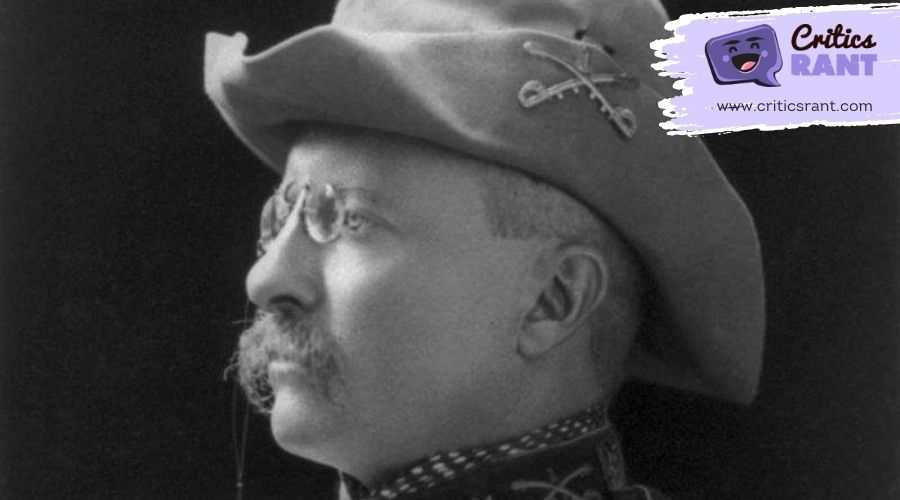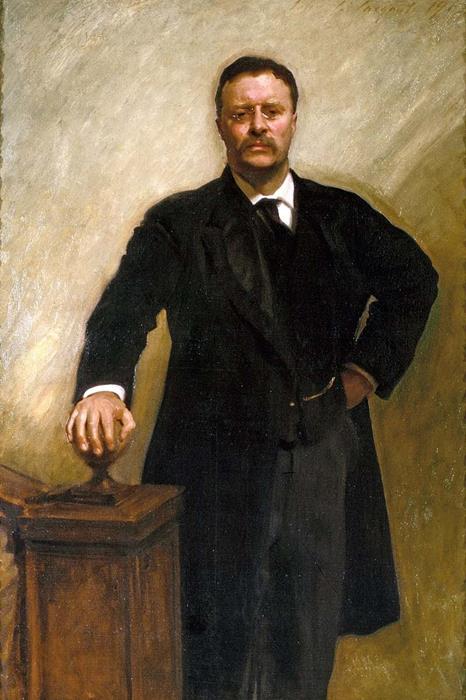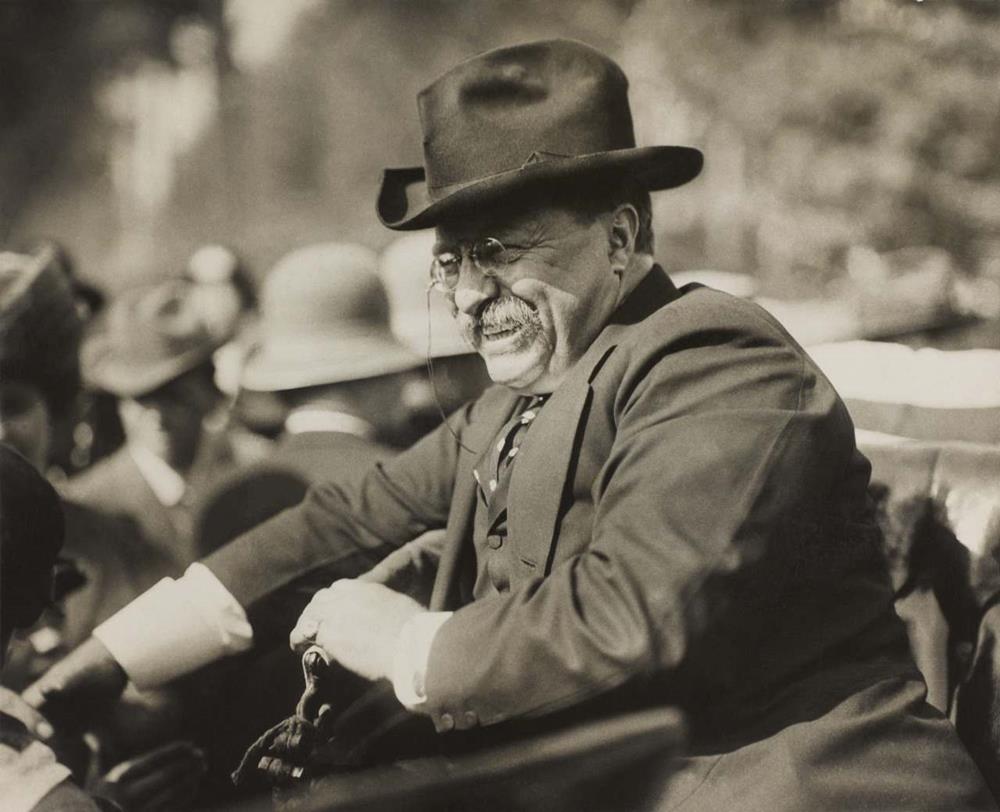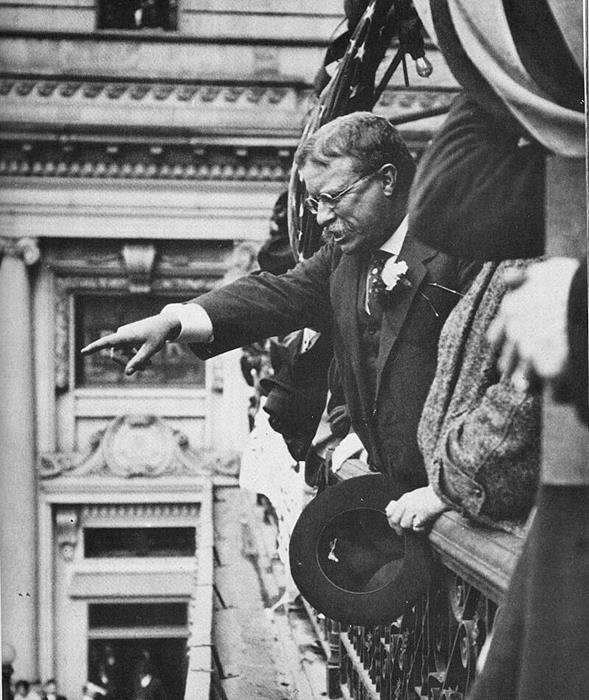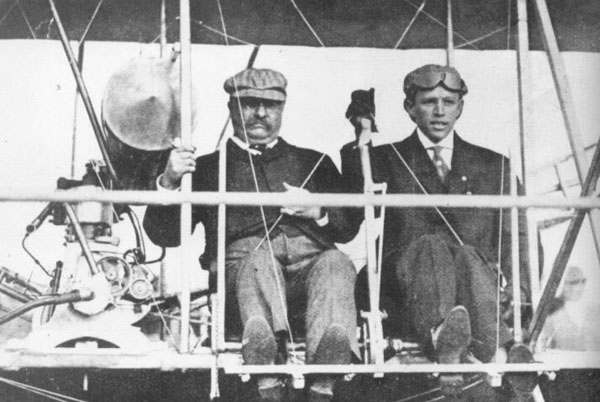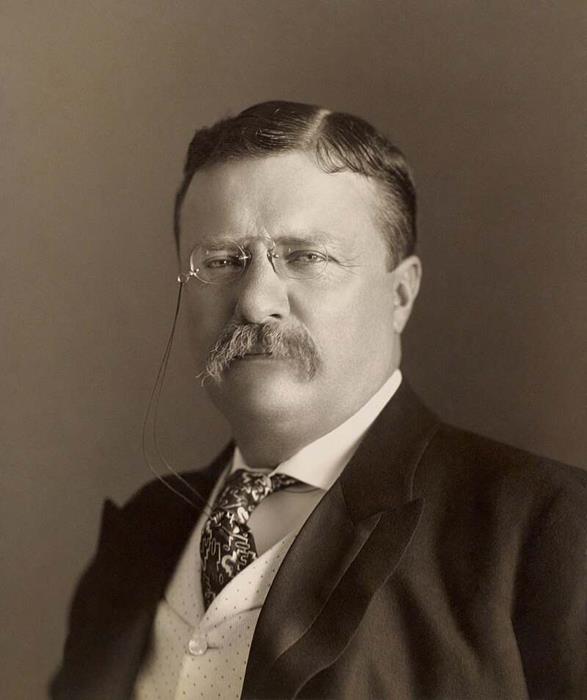Teddy Roosevelt was one of America’s most memorable presidents, known for his larger-than-life personality. Born in 1858, he became president in 1901 after President William McKinley was assassinated. Roosevelt was not just a leader; he was a dynamic force full of energy and determination. Understanding his personality helps us see why he was able to do so much during his time in office, from shaping the role of the presidency to pushing for laws that made life better for many Americans. In this article, we’ll explore what made Teddy Roosevelt’s personality so unique and influential.
Influences on Roosevelt’s Personality
Teddy Roosevelt was born into a wealthy family in New York City, but his life was not just about luxury. His father, Theodore Roosevelt Sr., was a philanthropist and a businessman who greatly influenced young Teddy by instilling values of social responsibility and hard work. His mother, Martha Bulloch Roosevelt, was a Southern belle from Georgia, full of stories and charisma, which helped shape Teddy’s engaging personality.
Health Challenges
Despite his energetic public persona, Roosevelt faced significant health challenges as a child. He suffered from severe asthma and was often sick, which initially kept him confined indoors. Instead of succumbing to his physical limitations, he adopted a rigorous exercise regimen to overcome them. This battle with illness and his determination to strengthen his body had a lasting impact on his character, instilling a lifelong belief in living a “strenuous life.”
Education and Early Interests
Roosevelt’s education played a crucial role in developing his personality. He was homeschooled by tutors and his parents, who encouraged his curiosity and love of learning. Teddy was particularly drawn to natural history and the outdoors, which later fueled his passion for conservation. His time at Harvard College further broadened his horizons, exposing him to a range of ideas and fostering a robust sense of leadership and duty.
These early experiences helped mold Teddy Roosevelt into a person who was not just a thinker but a doer, someone who believed in the power of action and leadership to effect real change. His upbringing, battles with health, and educational background all converged to create a personality that was resilient, engaging, and tirelessly active.
Key Traits of Roosevelt’s Personality
Roosevelt was famously described as wanting to be “the bride at every wedding, the corpse at every funeral.” This vivid characterization captured his desire to be at the center of attention, whether in joyous celebrations or solemn gatherings. His presence was magnetic to both men and women, marked by his boldness, determination, drive, pride, and an irresistible charm.
He had a particular fondness for children, often engaging in play or captivating them with his storytelling. A master storyteller himself, he could mesmerize audiences with thrilling tales of his adventures in the West, bringing those rugged experiences to life with his vivid descriptions and charismatic delivery.
Vigor and Energy
Teddy Roosevelt’s personality was marked by an unmistakable vigor and an almost boundless energy. He was famously known for his “strenuous life” philosophy, which advocated for vigorous, active living as a duty both to oneself and to one’s country. This trait was not just a personal mantra but a public one that he applied to all areas of his life, from his approach to politics and reform to his passion for outdoor adventures.
Charismatic Leadership
Roosevelt’s charisma was another defining trait of his personality. He possessed a natural ability to connect with people from all walks of life, whether speaking to a room of politicians or mingling with workers. His enthusiasm was contagious, and he used his charismatic influence to rally support for his policies and visions, both at home and on the world stage.
Resilience and Tenacity
Throughout his life, Roosevelt demonstrated remarkable resilience and tenacity. From overcoming childhood health issues to facing political opposition, his response was always to meet challenges head-on. These qualities were not only evident in his personal endeavors but also shaped his political career, enabling him to push through significant reforms and navigate complex international relations.
Intellectual Curiosity
Roosevelt was a voracious reader and a lifelong learner, a trait that fueled much of his success. His intellectual curiosity spanned a wide range of subjects, from history and politics to biology and literature. This breadth of knowledge not only made him a well-rounded leader but also informed his decision-making and policy development, allowing him to draw on a rich reservoir of ideas and experiences.
Moral Conviction
A deeply ingrained sense of moral conviction guided much of Roosevelt’s personal and professional life. He held strong views on right and wrong, which he wasn’t afraid to act upon, even when it meant challenging the status quo. This trait was particularly evident in his fight against corruption and his efforts to ensure fairness in government and business.
Adaptability
Despite his strong convictions, Roosevelt was also highly adaptable, able to navigate the changing political landscapes of his time with skill. This adaptability was a key component of his effectiveness as a leader, enabling him to respond to new challenges with innovative solutions and to remain effective across different roles and responsibilities.
Roosevelt as a Reformer
Champion of Progressive Policies
Theodore Roosevelt’s presidency marked a significant shift towards progressive reforms in American politics. He was a staunch advocate for the fair treatment of all citizens, regardless of their economic status. Roosevelt used his authority to break up monopolies and regulate corporations, ensuring they did not exploit their power at the expense of ordinary people. His efforts led to the enforcement of the Sherman Antitrust Act, through which he famously took on powerful trusts like Standard Oil and the railroads.
Advocate for Consumer Protection
Roosevelt also pioneered consumer protection with the enactment of the Pure Food and Drug Act and the Meat Inspection Act in 1906. These laws were groundbreaking, as they established federal regulations to ensure the safety and quality of foods and medicines, protecting consumers from harmful products and deceptive marketing practices. This legislation was prompted by his reaction to the unsanitary conditions revealed in the meatpacking industry, as depicted in Upton Sinclair’s “The Jungle.”
Environmental Conservation
One of Roosevelt’s most enduring legacies was his commitment to environmental conservation. He was deeply influenced by his love for nature and his belief in conserving natural resources for future generations. During his presidency, Roosevelt established the United States Forest Service and signed into law the creation of five national parks. He also set aside 150 national forests, 51 federal bird reserves, four national game preserves, and 18 national monuments. Through these actions, he preserved millions of acres of natural land and wildlife, laying the groundwork for future conservation efforts.
Labor Relations
Roosevelt’s reform spirit extended to labor relations, where he played a pivotal role in mediating between workers and large industrial firms. His intervention in the 1902 coal strike, where he summoned both sides to the White House, marked the first time a sitting president actively intervened in a labor dispute. His fair-minded approach helped secure a deal that ended the strike, setting a precedent for federal arbitration in labor conflicts.
Civil Service Reform
Further solidifying his reformist credentials, Roosevelt expanded the merit-based system for government employment, known as the civil service system. He sought to ensure that government jobs were awarded based on competence rather than political connections, which helped to curb corruption and promote efficiency in public service.
Through these reforms and many others, Theodore Roosevelt reshaped the American political landscape. His actions not only addressed immediate issues of his time but also established principles and policies that continue to influence the United States.
Roosevelt’s Communication Style
Theodore Roosevelt’s communication style was a key aspect of his leadership and charismatic personality. His ability to connect with the public through various means was instrumental in rallying support for his policies and ideals. Here are some notable features of his communication style:
- Direct and Engaging: Roosevelt was known for his direct and engaging manner of speaking. He communicated in a straightforward and relatable way, making complex issues accessible and interesting to the general public.
- Vibrant and Energetic: His speeches were infused with vitality and passion, reflecting his energetic personality. This vigor made his addresses compelling and inspired his audiences.
- Use of Catchy Phrases: Roosevelt had a knack for using memorable phrases that resonated with his listeners. Terms like “speak softly and carry a big stick” and “the square deal” became synonymous with his policies and ethos, effectively branding his political ideas.
- Emotional Connection: He was adept at forming an emotional connection with his audience, often using personal anecdotes and humor. This approach made him appear more human and approachable, strengthening his rapport with the public.
- Mastery of Media: Roosevelt was one of the first presidents to effectively use the media to his advantage. He understood the power of newspapers and other forms of communication to shape public opinion and was very active in engaging with journalists and editors.
- Public-Facing Persona: He maintained a robust public-facing persona that was consistent and authentic. Whether addressing a crowd, speaking to reporters, or writing articles, his style was unmistakably Roosevelt—bold, decisive, and enthusiastic.
- Educational Approach: Often, his speeches served not only to inform but also to educate his audience about important national and international issues, demonstrating his commitment to raising public awareness and understanding.
These aspects of Roosevelt’s communication style not only made him a beloved leader but also a highly effective one, enabling him to push through substantial reforms and maintain a strong connection with the American people throughout his career.
Impact of His Personality on His Presidency
Theodore Roosevelt’s dynamic personality profoundly shaped his presidency, influencing his policy decisions, leadership style, and the way he handled both domestic and international affairs. Here are several key ways in which his personality left its mark on his time in office:
- Bold Decision-Making: Roosevelt’s fearless nature and willingness to take risks were evident in his approach to decision-making. He didn’t hesitate to use his executive power to make bold moves, such as enforcing the Sherman Antitrust Act to dismantle monopolies or using the Big Stick policy in foreign affairs. His assertive actions often preempted legislative approval, reflecting his belief in strong presidential leadership.
- Energetic Leadership: His boundless energy was a hallmark of his administration. Roosevelt was constantly in motion, pushing a wide array of domestic and foreign policies. His ability to multitask and drive numerous initiatives simultaneously energized and sometimes overwhelmed his contemporaries, but it also led to significant legislative accomplishments.
- Personal Involvement: Roosevelt’s hands-on approach meant that he was deeply involved in various aspects of governance, from mediating labor disputes to personally overseeing the construction of the Panama Canal. His direct involvement often ensured that projects and policies had momentum and visibility.
- Public Engagement: A master of public relations before the term even existed, Roosevelt used his charisma and communication skills to engage directly with the American people. He was the first president to truly harness the power of the media, giving press conferences and interviews to shape public opinion and drum up support for his policies.
- Moral Leadership: Roosevelt’s strong moral compass guided his presidency. He viewed the presidency as a “bully pulpit,” a powerful platform from which to advocate for what he believed was right. This moral certainty drove initiatives like the conservation movement and the Progressive reforms, which aimed at improving societal standards and protecting natural resources.
- Innovative Approaches: His willingness to innovate was seen in his approach to both domestic policy and diplomacy. Roosevelt expanded the scope and power of the presidency, setting precedents for future leaders. His introduction of the “Roosevelt Corollary” to the Monroe Doctrine and negotiation tactics in the Russo-Japanese War are prime examples of his innovative diplomacy.
- Crisis Management: Roosevelt’s resilience and tenacity were critical during times of national and international crisis. His leadership during the 1902 coal strike and his actions in the aftermath of natural disasters demonstrated his ability to manage crises effectively, offering reassurance and decisive action when needed.
Overall, Roosevelt’s personality not only defined his presidency but also reshaped the American presidency itself, setting new standards for leadership and expanding the influence of the office both at home and abroad.
Conclusion
Teddy Roosevelt’s dynamic personality was central to his success as a president. His energy, charisma, and strong leadership transformed the way the presidency functions and left a lasting impact on America. Through bold decisions, personal involvement in national issues, and effective communication, Roosevelt not only managed to bring significant reforms but also connected deeply with the American people. His legacy continues to inspire leaders and citizens alike, showing the powerful role that personality can play in shaping history.

